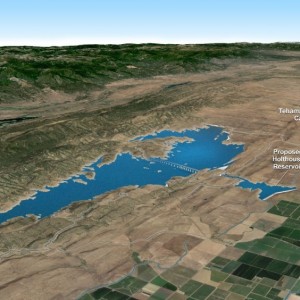Federal Water Tap, November 3: Federal Scientists Study Forest Fires and River Flows
The Rundown
Federal agencies submitted their climate change adaptation plans, and federal scientists are attempting to unchain water data. The U.S. Forest Service is starting a three-year study of wildfire and river flows, while the U.S. Environmental Protection Agency is assessing the nation’s drinking water infrastructure. The White House reviews coal ash regulations, and promotes investment in wetlands, forests, and coastal ecosystems.
“People are looking around and realizing that a lot of information is collected on water and it is not easy to compile and it is not in one place.” – Alan Rea, a U.S. Geological Survey hydrologist who is working on the Open Water Data Initiative, a project to build a common home for the nation’s water information.
By the Numbers
December 19: the court-ordered deadline for federal regulations on the storage and disposal of coal ash. (The Hill)
Two: number of sites, out of 43, removed last week from a list of contaminated sites in the Great Lakes region that are a high priority for cleanup. (EPA)
Reports and Studies
Lifting the federal ban on crude oil exports would increase domestic production from shale beds and possibly cause harm to water quality while adding stress to water-scarce regions, according to the government’s internal watchdog. The U.S. Government Accountability Office notes that the severity of these effects is unknown.
News Briefs
Data
Federal scientists are building a common home for U.S. water data. Proposed this summer, the Open Water Data Initiative will pull together data collected by various agencies into one Web portal. The goal is to produce better climate and weather forecasts. The first application – a real-time flood prediction tool – will be unveiled by June 2015, but fully developing the project will take decades, according to Alan Rea, a U.S. Geological Survey hydrologist.
Forest Fire
U.S. Forest Service scientists are beginning a three-year study of how forest fires influence river flows. Using a combination of computer models and historical data, they will assess the increases in water runoff that are expected after a large fire, either natural or prescribed. The study’s scale is large – computer simulations will be run for some 88,000 watersheds in the Lower 48 states.
This information will guide decisions made by land and water managers, according to Ge Sun, the scientist leading the study.
“If you thin 50 percent of a forest, is that a win-win?” Sun asked, referring to the reduction in fire risk and increase in water supplies that could come from thinning the right patch of forest.
Climate Plans
Heeding President Obama’s directive in his June 2013 climate plan, twenty-nine federal agencies submitted assessments of how a warming world affects their operations and how they are responding. The EPA’s Office of Water outlines ten priorities, most of which promote the use of the agency’s climate evaluation tools. The office will also encourage states to use federal loan programs to finance climate adaptations.
On the Radar
The EPA informed the White House that it will begin collecting data on the money needed to maintain the nation’s drinking water infrastructure. Published every four years, the survey looks at needs across a 20-year window.
The U.S. Army Corps of Engineers will prepare an environmental review for a wetland restoration project in southern Louisiana. The Maurepas Swamp Diversion Project involves redirecting a portion of the Mississippi River’s flow into an area sinking from a lack of sediment.
Federal Water Tap is a weekly digest spotting trends in U.S. government water policy. To get more water news, follow Circle of Blue on Twitter and sign up for our newsletter.
Brett writes about agriculture, energy, infrastructure, and the politics and economics of water in the United States. He also writes the Federal Water Tap, Circle of Blue’s weekly digest of U.S. government water news. He is the winner of two Society of Environmental Journalists reporting awards, one of the top honors in American environmental journalism: first place for explanatory reporting for a series on septic system pollution in the United States(2016) and third place for beat reporting in a small market (2014). He received the Sierra Club’s Distinguished Service Award in 2018. Brett lives in Seattle, where he hikes the mountains and bakes pies. Contact Brett Walton





Leave a Reply
Want to join the discussion?Feel free to contribute!